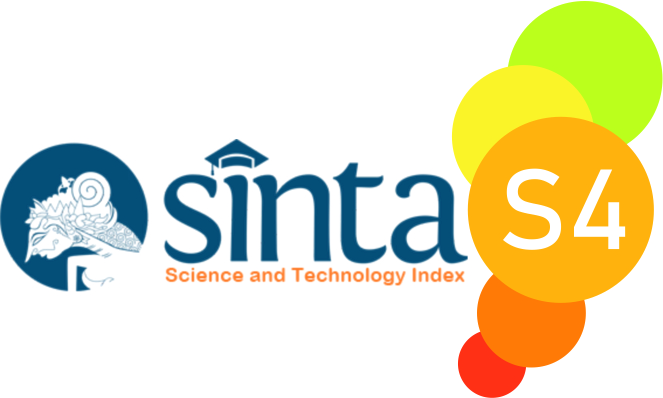Improving Student Speaking Skills Using the Hello English Application
Abstract
Currently, the development of technology is very advanced. Technology can be used as an alternative to other media to gain learning about various English skills. With an application that can be used as a medium for learning English, of course, it will be very helpful for the general public or students who want to learn English instantly. One of the language skills that are very important in everyday life is speaking skills as an effective oral communication medium. The researcher used classroom action research to do this research. which aims to improve students' speaking skills using the Hello English application. This research was conducted in two cycles. The research procedure in this study consisted of four steps. Namely planning, implementation, observation, and reflection. Research instruments are in the form of observation sheets, questionnaires, tests, and documentation. From the findings and discussion, it is found that the Hello English application can improve students' speaking skills. This can be seen in test cycle 2. In cycle 2, the students' speaking scores showed that 20 students passed and 2 students failed. The average test score in cycle 2 was 8.05 and the percentage increase was 85.25%. This shows that in cycle 2 the student's score meets the success criteria of 75%. Thus, based on the results of cycle 2 the Hello English application can improve student’s speaking skills.
References
Arifah, A. (2014). Study on the use of technology in ELT classroom: Teachers’ perspective. M.A. Thesis, Department of English and Humanities. Bangladesh.
Brown, H. (2001). Teaching by Principles: an Interactive Approach to Language Pedagogy 2nd Edition. New York: Addison Wesley Longman,inc. .
Davies, P. &. (2000). Success in English Teaching. Oxford University Press.
Drayton, B. F. (2010). After installation: Ubiquitous computing and high school science in three experienced, high-technology schools. Journal of Technology, Learning, and Assessment.
Fransiska, S. (2020). The Effectiveness of Using Hello English Application to Teach Vocabulary at The Tenth Grade Students of SMAN 1 Durenan. Thesis Department of English Education IAIN Tulungagung.
Harmer, J. (2007). The Practice of English Language Teaching. Longman.: Cambrigde.
Hedge, T. (2000). Teaching and Learning in the Language Classroom. Oxford: Oxford University Press.
Hughes, R. (2002). Teaching and Researching Speaking. New York: Pearson Education.
Kemmis, S. a. (1988). The Action Research Planner, Third Edition. Australia: Deakin University Press.
Littlewood, W. (2007). Communicative Language Teaching. Cambridge: Cambridge University Press.
Nunan, D. (1995). Language Teaching Methodology. Prentice Hall.
Pourhossein Gilakjani, A. (2014). A detailed analysis over some important issues towards using computer technology into the EFL classrooms. Universal Journal of Educational Research.
Summer, D. (2003). Longman Dictionary of Contemporary English. Harlow: Lego Print.
Tuan, N. H. (2015). Factors Affecting Students’ Speaking Performance at LE Thanh Hien High School. Asian Journal of Educational Research.
Yunita, S. (2019). The Implementation of Hello English Application as English Learning Media to Teach Speaking Skill in Tourism Major ar The Tenth Grade Students at SMK Negeri 1 Karanganyar.
Copyright (c) 2023 Anggraini Anggraini, Unpris Yastanti, Faisal Faisal

This work is licensed under a Creative Commons Attribution-ShareAlike 4.0 International License.

Journey: Journal of English Language and Pedagogy by http://ejurnal.budiutomomalang.ac.id/index.php/journey/index is licensed under a Creative Commons Attribution-ShareAlike 4.0 International License.






